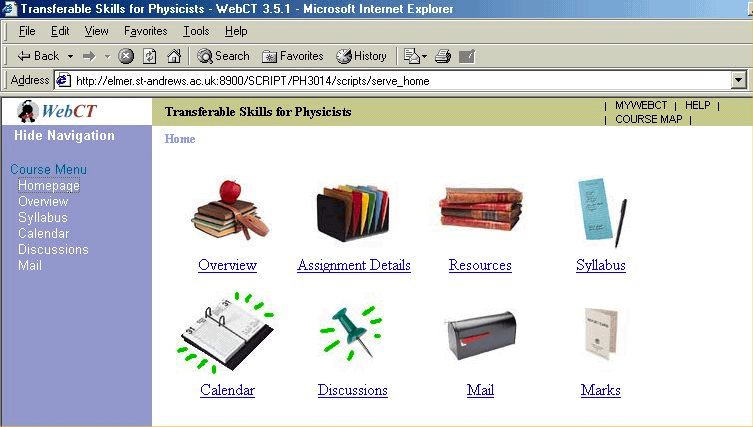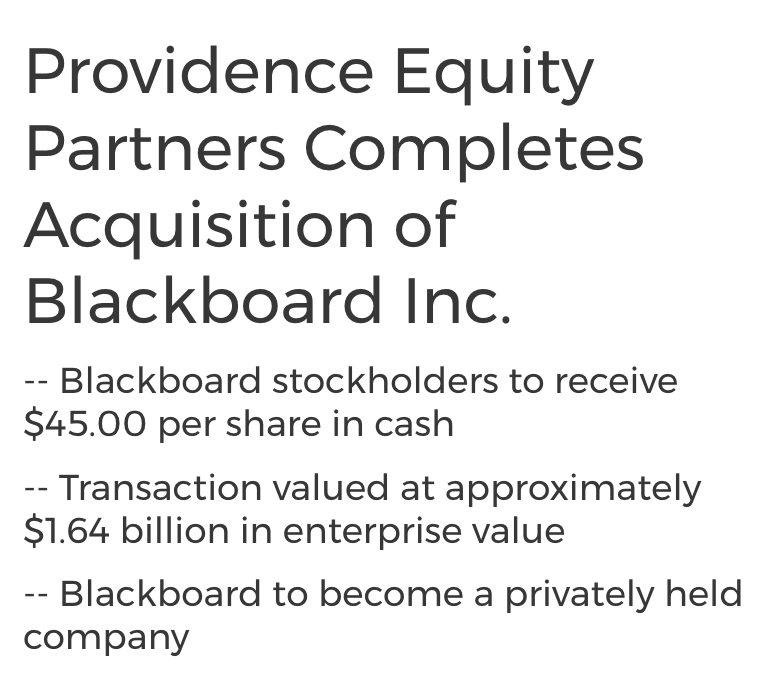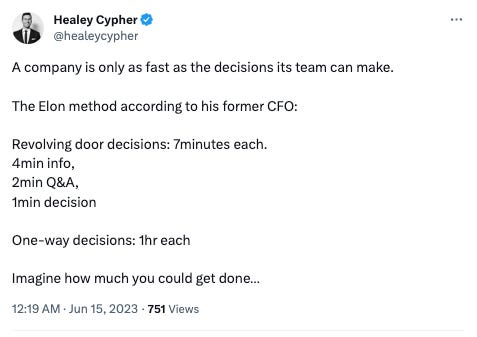Linear #026: The Story of Blackboard, Elon's Meeting Method, Self Interest Selling
One vSaaS breakdown. One biz story. One 'how-to'. In your inbox once a week.
Welcome back to another episode of Linear!
The newsletter on all things Vertical Software.
The Story Of Blackboard.com
In 1996, Cornell students Stephen Gilfus and Daniel Cane founded CourseInfo in their dorm rom. The goal? Create a course management system that would enable students and instructors to access everything they needed to know about their college classes online.
One year later, Michael Chasen and Matthew Pittinsky were working on a very similarily prototype while working at KPMG. Cane of CourseInfo, and Chasen of Blackboard, met at an education conference and decided to merge the companies to help raise money and scale the business.
The Blackboard team started out with a freemium model, allowing instructors to host their courses online for free for two weeks, before having to move to a paid model. By 1998 they had instructors at 15 Universities utilizing their software eclipsed $1M in revenue.
That was enough for the company to raise their first round of venture capital, a $1.9M Series A round in 1999. With the dot com boom in full effect, their Series B and Series C happened in relatively short order - a $3.5M Series B round in 1999, and a $12.5M Series C in 2000.
Selling into higher education is well known in the venture capital community to be INCREDIBLY difficult. Blackboard was such an early mover that it doesn't seem they faced the same type of challenges. In 5 years from their founding, they had achieved 39% market share 🤯🤯🤯
It didn't seem like Blackboard could be stopped. The company went public in 2005 at a valuation of $350M. An absolutely INSANE number for a group of college students who founded the business in their dorm room.
Leveraging funding from the public debut, they acquired two other dot com education start-ups, Prometheus LMS and WEB CT LMS in 2005 and 2006. That, along with their organic growth, led to blackboard owning 60% of the higher education market by 2006 (!!!!)
Blackboard is a case study that vertical SaaS companies can achieve such a larger percent of market share than horizontal peers. Tailor-made features and capabilities allow for this. 60% is truly INSANE. But it'd be Blackboard's peak.
The company hit a bit of a wall between 2007 and 2009 as competitors emerged. Moodle, an open-source LMS, came onto the scene with a solution far cheaper and more customizable.
Blackboard made the decision to sell the business to Providence Equity Partners in 2011 for a whopping $1.64 BILLION Chasen, Co-Founder & CEO, would only remain at the company for one more year, through 2011. Pittinsky was gone by 2012.
Providence Equity ran the classic Private Equity strategy. They brought in Jay Bhatt, a professional CEO, and went on a crazy acquisition spree. They bought 20+ companies over the next ten years. Gluing together so many companies created a lot of challenges for end users...
According to a TechCrunch article, despite its success, Blackboard had become "one of the most disliked — even detested — companies in education." Fast Company reported that 93% of respondents to a customer opinion survey "hate" the company.
Even with the amount of acquisitions, Blackboard's market share continued to rapidly shrin. Canvas LMS, an innovative upstart out of Utah began to rise to prominence.
In 2021, Blackboard merged with Anthology, a provider of back-office tools for Higher Education, with a flagship Student Information System.
Blackboard is a case study in:
College students can create incredibly innovative companies from their dorm rooms
Vertical SaaS continues to show that they can acquire SO MUCH more market share than their horizontal peers.
Acquiring companies can be disastrous
It is too early to tell how the Anthology + Blackboard combination will go.
Time will surely tell.



















Instructure/Canvas is very interesting actually. Also started by 2 college students and overtook blackboard bc of a couple of things.
1) blackboard used to stop competitors by being a patent troll. when their patents became invalidated, opened space up for Canvas.
2) blackboard stopped innovating. their product was just so much worse in terms of ux. Canvas met with almost 30 university CTOs and built an MVP on ppt to figure out what they hated about blackboard/how to build the perfect alternative
3) at the time, blackboard didnt have servers on the cloud, so the software was installed directly in the universities. when they were making the switch, it allowed canvas to swoop in steal customers as they were cloud based from the start.
2 additional readings I def recommend anyone to check out: Brian Whitmer (Instructure's cofounder) has a good blog where he goes more into detail about this stuff and Instructure's ($INST) annual reports